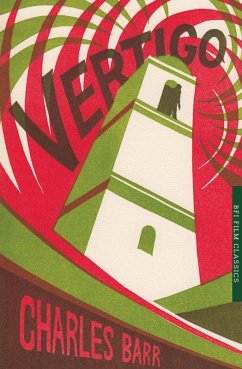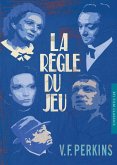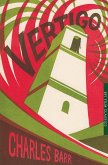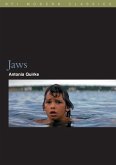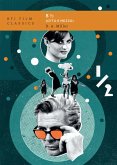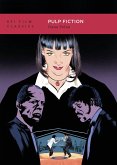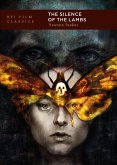Vertigo (1958) is widely regarded as not only one of Hitchcock's best films, but one of the greatest films of world cinema. Made at the time when the old studio system was breaking up, it functions both as an embodiment of the supremely seductive visual pleasures that 'classical Hollywood' could offer and - with the help of an elaborate plot twist - as a laying bare of their dangerous dark side. The film's core is a study in romantic obsession, as James Stewart's Scottie pursues Madeleine/Judy (Kim Novak) to her death in a remote Californian mission. Novak is ice cool but vulnerable, Stewart - in the darkest role of his career - genial on the surface but damaged within.
Although it can be seen as Hitchcock's most personal film, Charles Barr argues that, like Citizen Kane, Vertigo is at the same time a triumph not so much of individual authorship as of creative collaboration. He highlights the crucial role of screenwriters Alec Coppel and Samuel Taylor and, by a combination of textual and contextual analysis, explores the reasons why Vertigo continues to inspire such fascination.
In his foreword to this special edition, published to celebrate the 20th anniversary of the BFI Film Classics series, Barr looks afresh at Vertigo alongside the recently-rediscovered 'lost' silent The White Shadow (1924), scripted by Hitchcock, which also features the trope of the double, and at the acclaimed contemporary silent film The Artist (2011), which pays explicit homage to Vertigo in its soundtrack.
Although it can be seen as Hitchcock's most personal film, Charles Barr argues that, like Citizen Kane, Vertigo is at the same time a triumph not so much of individual authorship as of creative collaboration. He highlights the crucial role of screenwriters Alec Coppel and Samuel Taylor and, by a combination of textual and contextual analysis, explores the reasons why Vertigo continues to inspire such fascination.
In his foreword to this special edition, published to celebrate the 20th anniversary of the BFI Film Classics series, Barr looks afresh at Vertigo alongside the recently-rediscovered 'lost' silent The White Shadow (1924), scripted by Hitchcock, which also features the trope of the double, and at the acclaimed contemporary silent film The Artist (2011), which pays explicit homage to Vertigo in its soundtrack.

